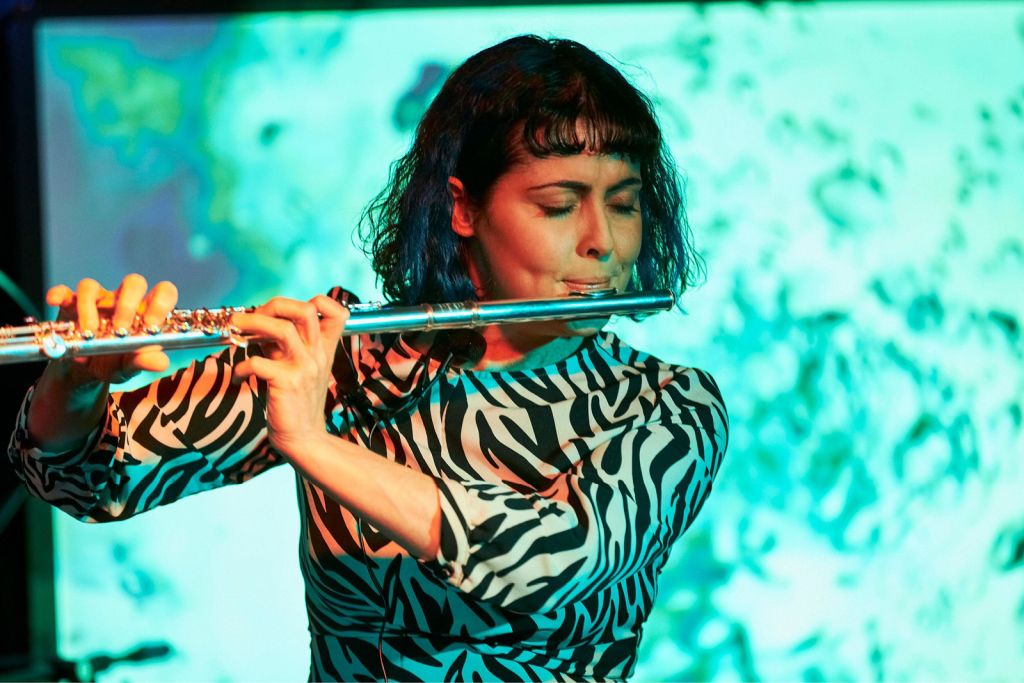Improvisation can be scary, especially for classically trained musicians. It can be shunned as a lesser form of practice, and is often misunderstood as something lacking in structure, function or cause. But improvisation is a fundamental human drive. It shouldn’t be treated like a precious commodity.
 Keyna Wilkins. Photo © Tawfik Elgazzar
Keyna Wilkins. Photo © Tawfik Elgazzar
I started as a classically trained flutist and pianist, with a light sprinkle of jazz. My institutions were the old guard: Sydney Conservatorium, Bristol and Bath Spa Universities in the UK, and the University of Hildesheim in Germany. I mostly stuck to the rules but dabbled in the shadows of free expression during these years, often as a tool to generate ideas for my compositions.
When I was 19, I saw a performance in a little hut by a Tibetan Buddhist monk, Tenzin Choegyal, playing a bamboo flute. It was so powerful, intuitive, deep and moving, I approached him after the show and asked to take lessons. He agreed on the condition that they were free. Those short lessons changed my life. He taught me to see improvisation as a bridge to the Vipassanā state – the insight...










Comments
Log in to join the conversation.